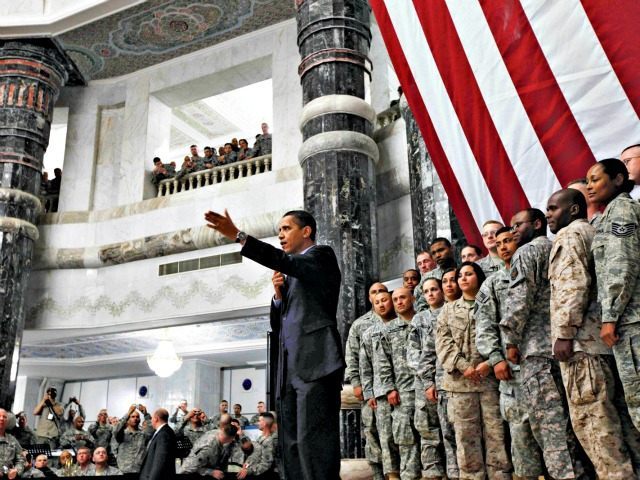Barack Obama was elected president in 2008 on a pledge to end the war in Iraq.
Of course, to those who were paying attention, Obama’s strategy was more of a re-deployment than a retrenchment, shifting resources away from the Mesopotamian theater and into efforts to counter al Qaeda in Afghanistan and Pakistan. But for a country weary of war in Iraq, the President’s words resonated. He summed up his own appeal at a press conference in 2013: “I was elected to end wars, not start them.”
Today, President Obama has not just failed to end wars, he has involved America in two new ones. The most recent of those fronts is Syria, where the White House has announced that 250 military personnel are on the way to help fight the Islamic State (ISIS/ISIL). That is a worthy goal, certainly, but given the sticky and ever-changing web of alliances that constitutes the Syrian Civil War, can a greater American presence fight only ISIS without inadvertently aiding the regime, or abetting the rebels, or marching headlong into the crossfire between Turkey and the Kurds? It isn’t clear.
Syria is not the only place America is heading back to war. President Obama supposedly pulled most of the troops out of Iraq in 2011; now we’re back, with 5,000 boots on the ground and counting, a number that exceeds even the administration’s self-imposed cap of 3,870. In February, Obama launched airstrikes against militants in Libya, where pressure is mounting for a greater American role. And in Afghanistan, the forever war against the resurgent Taliban continues.
The result is that whoever is unlucky enough to take Obama’s place in the Oval Office will inherit more wars than then-Senator Obama himself did, against a more capable terrorist threat than President Bush faced, in the midst of a Middle East that is bleeding like never before.
Under the previous administration, America became bogged down in Iraq. But despite the flow of foreign soldiers and obstreperous rhetoric about “real men go to Tehran,” our woes were mostly limited to that single country. Obama has broadened our commitment significantly while also reducing our number of boots on the ground. Those two approaches are, of course, contradictory, and so now he finds himself gradually upping our troop presence once again.
Some of this is due to events beyond Obama’s control. The White House could not have hoped to contain the Arab Spring (though it should have predicted that it would spiral out of control), and the Islamic State’s blaze across Iraq took even the most seasoned foreign policy observers by surprise. But there is no question that several of Obama’s decisions directly contributed to the Middle East’s unraveling. His deposal of Moammar Gaddafi, his arming the question-mark-laden Syrian rebels, his aiding the reckless Saudi campaign in Yemen, and his Alfred E. Neuman attitude towards drone warfare have all bolstered the terrorist groups we are supposed to be defeating.
This goes well beyond the Islamic State. Though the Saudis have recently thrown some bombs in the general direction of terrorism, there is no question their attack on Yemen has aided al Qaeda. The group’s franchise in Syria, al Nusra, is flourishing as well. Saudi Arabia and the Gulf States still harbor donors and academies that contribute to terrorism. Even Tunisia—once touted as the sole surviving blossom of the Arab Spring—is now the world’s number one pipeline for ISIS recruits, as disenchanted locals decide something more extreme than democracy is required this time around.
Our war in Iraq has exploded into a region-wide conflagration.
When President Reagan decided America’s participation in the byzantine Lebanese Civil War had become a distraction, he acted decisively and pulled the Marines out of Beirut. In contrast, President Obama finds himself getting sucked in not just to the equally convoluted Syrian Civil War, but several other conflicts, intervening and then intervening further to stem the consequences of his interventions.
It is a strange ending for a president who promised to end wars and assured the public no fewer than 10 times that he would not deploy troops to Syria. Yet here we are. Can the next president do any better?
Matt Purple is a fellow at Defense Priorities and deputy editor at Rare Politics.

COMMENTS
Please let us know if you're having issues with commenting.